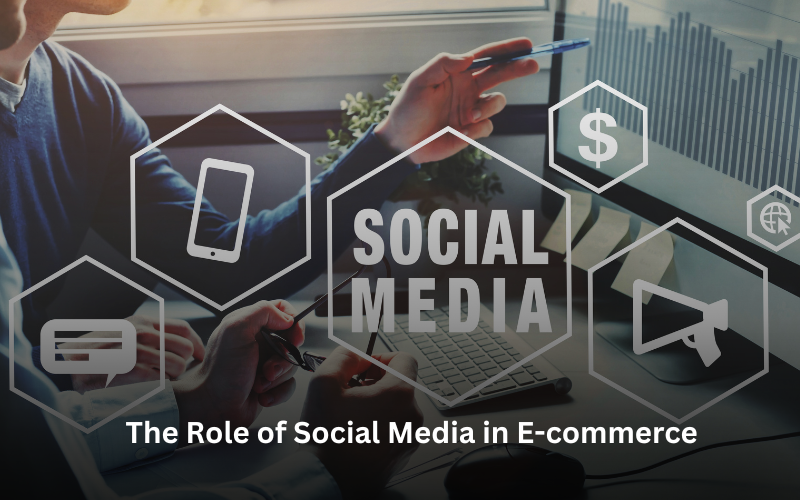In the dynamic realm of digital commerce, social media has transcended its traditional role as a mere platform for social interaction and has emerged as a formidable tool in the e-commerce arsenal. This guide, enriched with over 13 years of e-commerce expertise, explores how businesses can effectively leverage social media to enhance their e-commerce strategy, drive sales, and broaden their customer base.
The Strategic Importance of Social Media in E-commerce
Social media’s influence on e-commerce is profound, offering unique opportunities for brands to engage directly with consumers in real time. More than just a platform for marketing, social media facilitates a direct pathway to customer engagement and sales, transforming the way businesses approach marketing and customer service.
Why Social Media Matters for E-commerce
- Enhanced Engagement: Social platforms offer businesses a way to engage with customers more intimately and frequently.
- Increased Exposure: With billions of users globally, social media provides unparalleled reach.
- Direct Sales Opportunities: Platforms like Instagram and Facebook now offer ways for customers to purchase directly from social media posts.

Developing a Social Media Strategy for E-commerce
Identifying the Right Platforms
Different social platforms cater to different demographics and offer various features that can benefit your business:
- Facebook: Excellent for targeted advertising and broad reach.
- Instagram: Ideal for visual products and younger demographics.
- Pinterest: Effective for driving traffic to your e-commerce site, particularly for fashion and home decor items.
Creating Engaging Content
Content is king on social media, and its quality directly influences engagement and sales:
- Product Showcases: Use high-quality images and videos to showcase your products.
- Customer Testimonials: Share customer reviews and testimonials to build trust and credibility.
- Behind-the-Scenes Content: Offer glimpses into your business operations to create a personal connection.
Leveraging Advertising and Promotions on Social Media
Targeted Advertising
Social media platforms offer sophisticated targeting options based on demographics, interests, and behavior:
- Custom Audiences: Target ads based on user data such as past interactions with your brand.
- Lookalike Audiences: Reach new users whose interests and demographics match those of your existing customers.
Promotions and Discounts
Utilize social media to run promotions, contests, and giveaways:
- Limited-Time Offers: Create urgency with time-sensitive discounts.
- Exclusive Social Offers: Provide special deals to your social media followers to encourage loyalty.

Expanding Reach with Influencer Partnerships
Choosing the Right Influencers
The right influencer can amplify your brand’s message to a larger and often more engaged audience:
- Relevance and Reach: Select influencers who align with your brand’s values and have a substantial, engaged following.
- Collaboration Models: Consider different forms of collaborations such as sponsored posts, co-created products, or affiliate marketing.
Measuring the Impact of Influencer Campaigns
- Engagement Rates: Track likes, comments, shares, and other forms of engagement to gauge the effectiveness of influencer partnerships.
- Conversion Tracking: Use tracking links and promo codes to monitor sales generated from influencer campaigns.
Integrating Social Media with E-commerce Platforms
Seamless Integration for Enhanced User Experience
Integrate your e-commerce platform with social media to provide a seamless shopping experience:
- Social Login: Allow customers to log in to your e-commerce site with their social media accounts.
- Social-Powered Shopping Carts: Enable users to add products to their shopping cart directly from social media posts.
Conclusion: Social Media as a Catalyst for E-commerce Growth
Social media is not just an extension of your e-commerce business—it’s a pivotal component of modern e-commerce strategies. By effectively leveraging the power of social media, businesses can significantly enhance their customer interaction, reach, and overall sales.
Actionable Tips:
- Regularly update your social media strategy based on platform updates and changing user behavior.
- Invest in social media training for your team to keep them updated on best practices.
- Use analytics tools to continuously measure the effectiveness of your social media activities.

